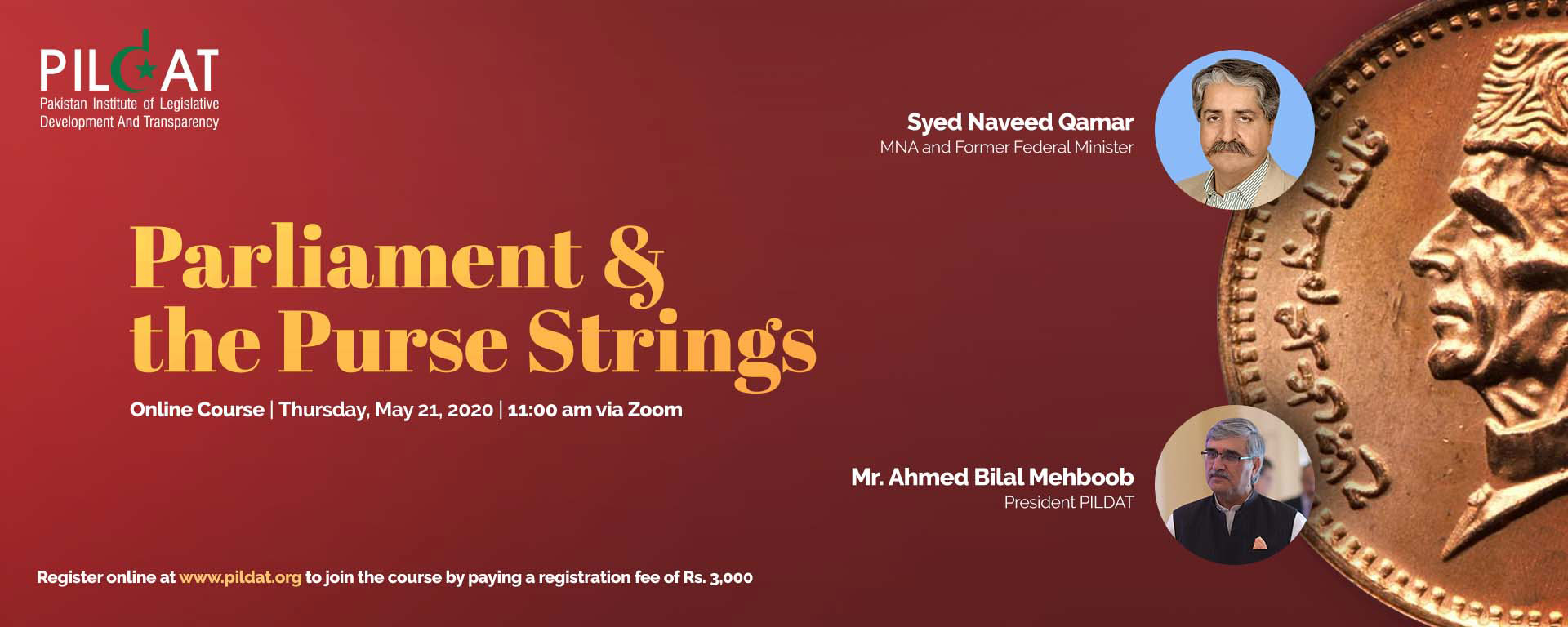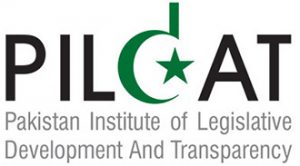

Is Parliament of Pakistan Really in Control of the Purse Strings of Pakistan’s Budget?
What are the Parliamentary powers of Review, Scrutiny and Passage of Federal Budget?
How effective is the Parliament in using its Power of the Purse?
Why is it important to bring public expenditure under the control of citizens’ elected representatives in the Parliament?
Power of the purse or control on purse strings is one of the most crucial powers of an elected parliament over a country’s budget and its public expenditure. This power and its effective use become all the more essential in a developing country like Pakistan struggling with economic management of inadequate resources. With the new dynamic of dealing with COVID-19, this power has taken an all new centrality. But is Pakistan’s Parliament fully utilising this power?
In a PILDAT Online Short Course on Parliament and the Purse Strings, experts will discuss what is constitutionally required by the Parliament to control the federal purse strings, effectively involve itself in budget scrutiny and what, if any, are the hindrances in the exercise of these powers? Together with leading practitioners from the Parliament, Government and Political Parties, the PILDAT Online Course would discuss these and related questions on Thursday, May 21, 2020 at 11:00 am via Zoom.
The short course on Parliament and the Purse Strings has been designed by PILDAT to provide citizens with a dynamic and robust understanding of what are the powers of the Parliament over budget, why parliamentary power of the purse is critical in effective management of public expenditure, is Parliament effectively utilizing this crucial responsibility and if there are any shortcomings in the process that hinder Parliament from playing this role effectively? In providing this understanding to participants, the course will also look at how other democracies are effectively utilising elected public representatives’ control on purse strings.
The course will help participants understand Budget Process in Pakistan, its key shortcomings and required improvements so that as informed citizens, participants can set practical expectations from their elected representatives and the government in the upcoming budget. The course will also discuss the role of Parliament and Political Parties in improving the Budget Process in Pakistan. The course will also engage participants to build and strengthen their leadership skills and potential in developing practical recommendations for policy reforms.
The course is open to young policy professionals, political leaders including elected public representatives, researchers, journalists, teachers, students and every citizen interested in holding Parliament and Government to account.
As a young professional, whether you wish to join politics, prepare for competitive examinations, are a student, working in the government sector, are part of the corporate or development sector or are part of the academia, this short course will help you understand Pakistan’s key policy issues on budget process, challenges facing Pakistan’s economic future and practical suggestions on how to bring about improvements in effective management of public expenditure by citizens’ elected representatives.
Everyone interested in developing a practical understanding on the subject can register online at www.pildat.org to join the course by paying a registration fee of Rs. 3,000. The registration fee can be paid online latest by May 20, 2020 by visiting www.pildat.org/parliamentandthepursestrings
The course will be delivered by Syed Naveed Qamar, MNA and Former Federal Minister along with Mr. Ahmed Bilal Mehboob, President PILDAT while Members of Parliament and Political Parties will also be leading the conversation.
Registrations are closed now






